Kipling Quotes
Quotes tagged as "kipling"
Showing 1-13 of 13

“I libri le aprivano mondi nuovi e le facevano conoscere persone straordinarie che vivevano una vita piena di avventure. Viaggiava su antichi velieri con Joseph Conrad. Andava in Africa con Ernest Hemingway e in India con Kipling. Girava il mondo restando seduta nella sua stanza, in un villaggio inglese.”
― Matilda
― Matilda
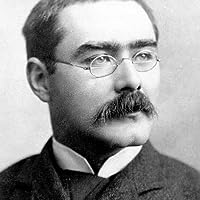
“The toad beneath the harrow knows
Where every separate tooth-point goes ;
The butterfly upon the road
Preaches contentment to that toad.”
― Complete Verse
Where every separate tooth-point goes ;
The butterfly upon the road
Preaches contentment to that toad.”
― Complete Verse
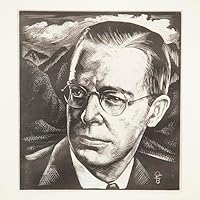
“Dad used to read aloud to us from Dickens and Kipling. My tastes were omnivorous. I read anything I could lay my hands on, but the memory that stays with me is that of my father reading the Jungle Books to us when we were young. Beautiful stories!”
―
―
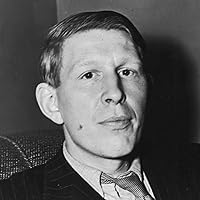
“Time, that is intolerant
Of the brave and innocent,
And indifferent in a week
To a beautiful physique,
Worships language, and forgives
Everyone by whom it lives;
Pardons cowardice, conceit,
Lays its honours at his feet.
Time, that with this strange excuse,
Pardons Kipling and his views,
And will pardon Paul Claudel,
Pardons him for writing well.”
―
Of the brave and innocent,
And indifferent in a week
To a beautiful physique,
Worships language, and forgives
Everyone by whom it lives;
Pardons cowardice, conceit,
Lays its honours at his feet.
Time, that with this strange excuse,
Pardons Kipling and his views,
And will pardon Paul Claudel,
Pardons him for writing well.”
―

“The Stranger within my gate,
He may be true or kind,
But he does not talk my talk--
I cannot feel his mind.
I see the face and the eyes and the mouth,
But not the soul behind.
The men of my own stock,
They may do ill or well,
But they tell the lies I am wanted to,
They are used to the lies I tell;
And we do not need interpreters
When we go to buy or sell.
The Stranger within my gates,
He may be evil or good,
But I cannot tell what powers control--
What reasons sway his mood;
Nor when the Gods of his far-off land
Shall repossess his blood.
The men of my own stock,
Bitter bad they may be,
But, at least, they hear the things I hear,
And see the things I see;
And whatever I think of them and their likes
They think of the likes of me.
This was my father's belief
And this is also mine:
Let the corn be all one sheaf--
And the grapes be all one vine,
Ere our children's teeth are set on edge
By bitter bread and wine.”
―
He may be true or kind,
But he does not talk my talk--
I cannot feel his mind.
I see the face and the eyes and the mouth,
But not the soul behind.
The men of my own stock,
They may do ill or well,
But they tell the lies I am wanted to,
They are used to the lies I tell;
And we do not need interpreters
When we go to buy or sell.
The Stranger within my gates,
He may be evil or good,
But I cannot tell what powers control--
What reasons sway his mood;
Nor when the Gods of his far-off land
Shall repossess his blood.
The men of my own stock,
Bitter bad they may be,
But, at least, they hear the things I hear,
And see the things I see;
And whatever I think of them and their likes
They think of the likes of me.
This was my father's belief
And this is also mine:
Let the corn be all one sheaf--
And the grapes be all one vine,
Ere our children's teeth are set on edge
By bitter bread and wine.”
―
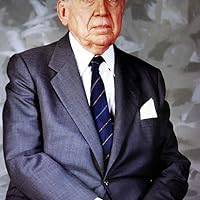
“A mí me tocó ser adolescente en el tiempo en que se leía a Salgari. Hoy poca gente lo hace y es lástima. Pobre Emilio Salgari, atado al banco de galeote de un editor italiano, produciendo novelas y novelas sin término sobre todo lo que en su tiempo pertenecía a la geografía fabulosa. Del fondo de la memoria me vienen los nombres de su India y su Malasia. Sandokan, Yáñez, Tremal Naik, Kammamuri, los «thugs» asesinos. Una geografía de visiones.
Y también el «Libro de la jungla» de Kipling. Lo que está en alguna parte del nocturno, en invisible abajo, es la jungla de Kipling. Donde el tigre Shere-Kan bosteza y la pantera negra Bagheera se agazapa. La de Naga la cobra y Rikki-Tiki-Tavi la mangosta, la de los lobos de Seoanee y la de Balú el oso y la del consejo de animales y los cantos de las tribus. Los que vamos dentro del monótono tabaco del avión ya no tenemos nada en común con Mowgli, el niño-lobo, y estamos desterrados de por vida de la geografía de Salgari y de la zoología de Kipling.”
― El globo de colores
Y también el «Libro de la jungla» de Kipling. Lo que está en alguna parte del nocturno, en invisible abajo, es la jungla de Kipling. Donde el tigre Shere-Kan bosteza y la pantera negra Bagheera se agazapa. La de Naga la cobra y Rikki-Tiki-Tavi la mangosta, la de los lobos de Seoanee y la de Balú el oso y la del consejo de animales y los cantos de las tribus. Los que vamos dentro del monótono tabaco del avión ya no tenemos nada en común con Mowgli, el niño-lobo, y estamos desterrados de por vida de la geografía de Salgari y de la zoología de Kipling.”
― El globo de colores
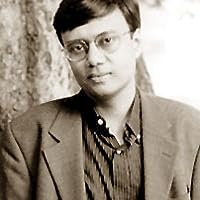
“Its (the Left’s) intensity derives from the fact that it’s a family largely composed of, in a manner of speaking, orphans of bhadralok history (for we hardly hear of the mothers and fathers of party members), brought together not by accident but by idealism and its cousin, ideology. Bonds of orphanhood and kinship are particularly charged (as Kipling showed us in The Jungle Book) when they are self-created, and each party member is probably a bit of everything – mother, father, sibling, friend – to every other member.”
― Calcutta: Two Years in the City
― Calcutta: Two Years in the City
All Quotes
|
My Quotes
|
Add A Quote
Browse By Tag
- Love Quotes 97.5k
- Life Quotes 76k
- Inspirational Quotes 73k
- Humor Quotes 43.5k
- Philosophy Quotes 29.5k
- Inspirational Quotes Quotes 27k
- God Quotes 26k
- Truth Quotes 23.5k
- Wisdom Quotes 23.5k
- Romance Quotes 23k
- Poetry Quotes 22k
- Death Quotes 20k
- Happiness Quotes 18.5k
- Life Lessons Quotes 18.5k
- Hope Quotes 18k
- Faith Quotes 18k
- Quotes Quotes 16.5k
- Inspiration Quotes 16.5k
- Spirituality Quotes 15k
- Religion Quotes 15k
- Motivational Quotes 15k
- Writing Quotes 15k
- Relationships Quotes 14.5k
- Life Quotes Quotes 14k
- Love Quotes Quotes 14k
- Success Quotes 13.5k
- Time Quotes 12.5k
- Motivation Quotes 12k
- Science Quotes 11.5k
- Motivational Quotes Quotes 11.5k



